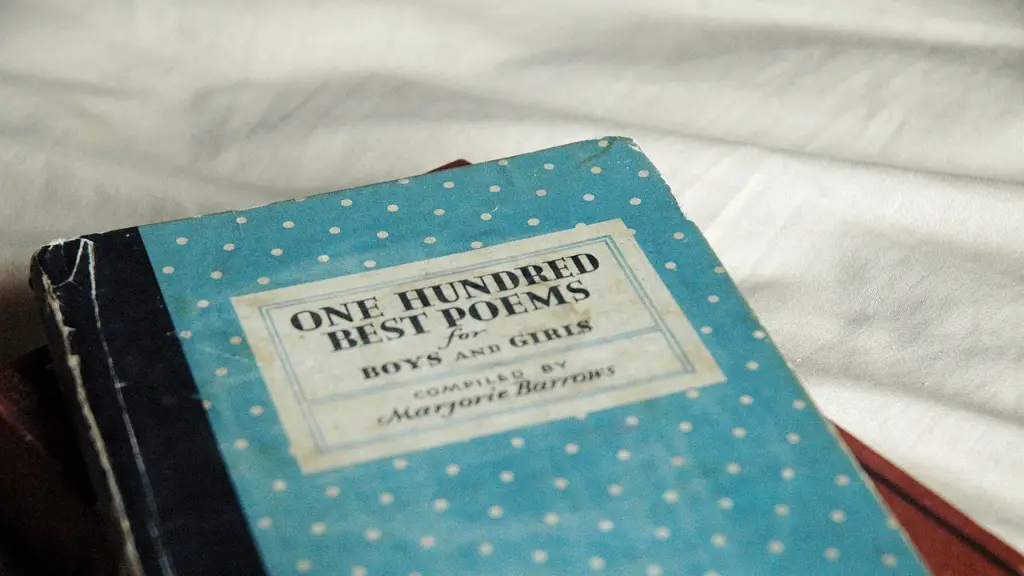Racial discrimination
Langston Hughes was born in 1902, in Missouri, and grew up during a time of rampant racial discrimination. American society was largely segregated, and African Americans were treated as second class citizens, faced with endless obstacles and challenges. From a young age, Hughes began experiencing the challenges faced by African Americans, experiencing the everyday racism he would grow to write about.
Hughes attended Cleveland’s Central High School, graduating in 1920. He wanted to pursue a career in writing and studied at Columbia University, but dropped out due to financial constraints. He moved to Washington, DC and worked a variety of odd jobs while continuing to write and find sources of inspiration. His poetry was often autobiographical, exploring the issues of racial inequality and the experiences faced by African Americans. His works highlighted the difficulties he personally faced because of his race, offering insight into the racism he experienced.
In 1926, Hughes published the first edition of his book of poetry, The Weary Blues, which was met with critical success. His work was one of the earliest to literary acclaim and upended conventional forms of poetic expression. This opened doors for his work to finally be read and respected, despite his racial identity. It gave a platform for African American writers, who often struggled to find any kind of recognition for their work.
Despite Hughes’ success, racial prejudice still followed him and limited the opportunities available to him. He was unable to find steady and secure employment and struggled to make ends meet. He did not end up becoming the English professor he initially aspired to be due to his race. While he eventually secured a minor position in teaching, he often had to take any job he could for financial stability or to contribute to his writing projects.
Hughes continued to write and published various volumes of poetry as well as plays, essays, and fiction. His works and materials garnered appreciation, but the attitudes of white America limited his recognision even further, in comparison to white authors. Black writers were largely disregarded, and did not receive the same accolades and fame as the works of their white peers. He experienced periods of censorship and backlash, as well as difficulty in finding outlets to publish his works.
Langston Hughes life and work reflected the plight of African Americans, who often struggled to break through glass ceilings due to injustice and prejudice. He captured the essence of what it meant to live as a black person in the 1930s, and his works preserved the experiences of himself and African Americans all over the world. He served as an inspiration and guide for writers of the Harlem Renaissance, the first prominent movement of African American creativity.
Economic Disadvantage
The economic disadvantage that African Americans faced was a significant obstacle to Hughes. He and many others often struggled to pay for housing and other basic necessities in a society that barely recognized them as citizens. Even when he obtained publication or writing opportunities, he could not always rely on the finances to follow.
Hughes and other African Americans had an extremely limited range of economic opportunities, and they often encountered outright discrimination when looking for suitable employment. Jobs were often informally limited to white people or those with lighter skin, meaning only a fraction of African Americans were able to break through and secure work. This not only caused financial instability, but it added a sense of oppression to the everyday lives of African Americans.
The economic shortcomings experienced by African Americans such as Hughes meant that creative projects and ideas often had to take a backseat due to financial constraints. The shortfalls of the wages available to African Americans from manual labor or jobs available in certain industries meant that the dream of a successful writing career was a distant one for Hughes and others.
This economic disadvantage was compounded by racial prejudice and further hindered Hughes’ progress. He found it difficult to use the means necessary for a writing career, such as travel, networking and the ability to invest in projects and creative ideas. If a writer could not find an outlet for their work, it became increasingly difficult to make a living as an African American writer.
The economic hardship experienced by Hughes and other African Americans of his era was a significant obstacle. Although there may be financial issues faced by writers of any race today, Hughes faced much greater difficulty in terms of financial resources and opportunity.
Education Limitations
The limited education opportunities for African Americans added to the obstacles that Hughes faced in his career. African American students had little access to quality education, and often resorted to segregated schools with limited resources, if any. Hughes attended a segregated high school, and finding a university to attend was a difficult task. After dropping out of Columbia University due to financial issues, Hughes likely lacked access to resources and support needed to complete higher education.
This lack of access to study tools and the trend of African Americans not being able to attend Ivy League universities or the better-funded universities was a big obstacle for Hughes. He likely lacked the proper training and guidance he needed to pursue his writing degree and perfect his craft, which could have enabled him to excel in his writing career.
If Hughes had been able to attend a better-funded university, or attend a university that could provide him with the skills and support he needed to flourish as a writer, his career could have seen more success. If he had been able to work with mentors and colleagues, this could have been an invaluable resource to him and provided him with the peer support and feedback he needed to excel.
The education limitations placed on African Americans also hindered their progression within the publishing industry. Beyond the segregated education systems and limited resources, African Americans were also not given the same opportunities and recognition as their white peers. This made it difficult for predominantly Black published works to receive the same kind of attention and appreciation when it came to the awards, or even publications.
The difficulty that Hughes and other African Americans experienced in finding educational opportunities not only damaged their academic prospects, but they prevented them from accessing the kind of resources that could have propelled their writing career and given them opportunity to create a successful portfolio.
Networking Barriers
Networking was a large obstacle for Hughes, as well as many other African American writers, due to segregation and the racial prejudice of the time. Writers and authors needed to establish networks and contacts to move their work forwards, but the racism that was commonplace in the 1930s meant that white networks would only accept very few African American colleagues.
Professional gatherings held by white institutions were often limited to white attendees and networks, meaning it was difficult for Hughes to build relationships and make connections with people that could promote and push his work. His opportunities for networking and collaboration were very few, and although he was able to make certain contacts, it was still difficult for him to make an impact and find outlets for his work.
The lack of networks and contacts in the publishing industry meant that Hughes could not feel any assurance of a positive outcome for his projects, as he could not access the resources and contacts of white networks. This significantly hindered his progression, as the white networks controlled a lot of the opportunities available to writers at the time, especially in the case of African Americans.
The lack of networks increased his sense of isolation and made it difficult for Hughes to share his work or ideas with other writers, even other African American colleagues. Without proper networks, he also lacked any form of guidance or mentorship, so it became increasingly difficult for him to hone his skills and make a success out of his career.
Societal Standards
Societal standards also posed an obstacle for Hughes, as the standards for acceptable works were largely determined by the white majority. Books and other forms of literature were often judged and offered criticism on different levels such as political correctness, moral acceptance, and racial implications. Often, works from African American authors were overlooked and barely given a second glance as they were deemed undesirable based on the white society’s standards.
Works such as Hughes’ were often rejected due to their content and ideas of racial equality. His work explored the experiences and thoughts of African Americans, and these lived experiences were not always welcome in white society. Hughes and other African American writers were often ignored or looked down upon due to their racial identity, and their words and ideas were barely considered, let alone respected.
The white majority often disregarded or refused to enter into serious discussions of racism and equity, meaning that Hughes’ writings were largely overlooked and disregarded. This crippled his success, as his work was refused publication or not granted the same recognition as work by white writers. This limitation meant that Hughes and other African Americans could not make the same progress as their white peers in the field.
The standards and attitudes of white society posed a significant obstacle for Hughes, as his work was often judged and criticized significantly harsher than his white peers. This created an unfair playing field and presented a huge mental challenge for Hughes and other African American writers who experienced prejudice daily.
Financial Aid Restrictions
The lack of financial aid available to African Americans, such as Hughes, further hindered his career and prevented him from gaining access to tools, guidance, and resources necessary to become a successful writer. Financial aid is a significant tool for aspiring writers, offering them the opportunity to gain the education and resources necessary to succeed in the writing industry.
Unfortunately, African Americans at the time were unable to access the same amount of financial aid as their white peers. This meant that creative projects and opportunities such as travel became increasingly more difficult for Hughes and his peers to pursue and less likely to gain funding. As a result, their earning potential and projects were hindered and their progress significantly stunted.
The limited financial aid opportunities meant that Hughes and other African Americans often had to rely solely on their finances, leaving them at an extreme disadvantage in terms of resources and tools needed to excel in their desired field. This put them at a huge disadvantage and prevented them from competing on the same level as their white counterparts.
The limited financial aid opportunities and racial prejudice and injustice meant that Langston Hughes and other African Americans faced a huge struggle in trying to pursue their writing careers. They were unable to access the same resources, networks and education, leaving them at a great disadvantage in their pursuit of success and recognition.





